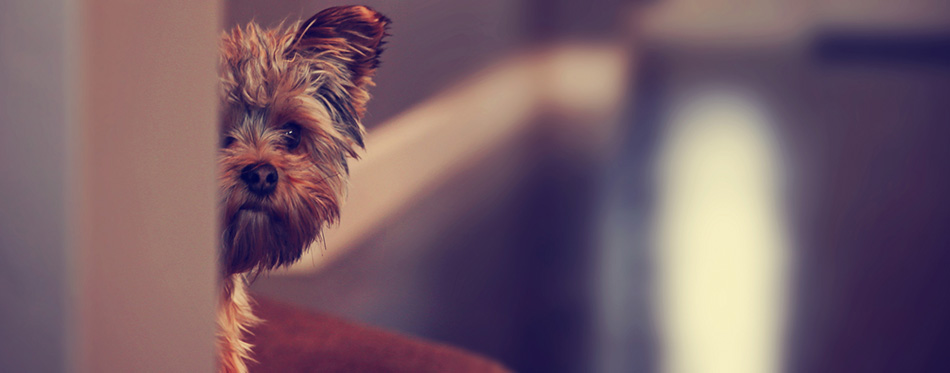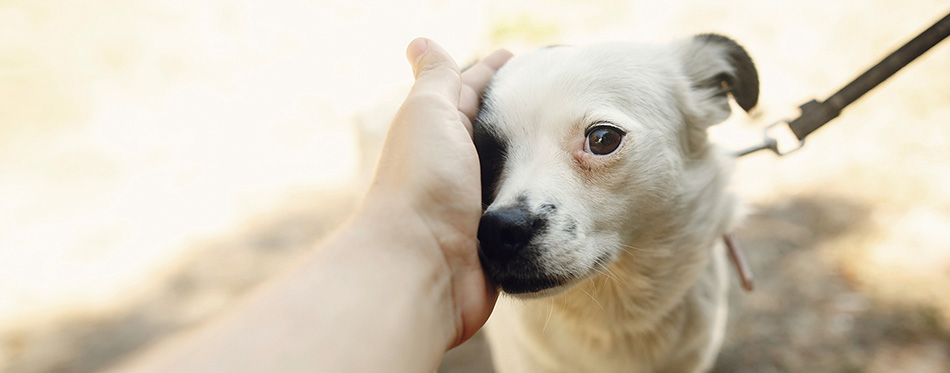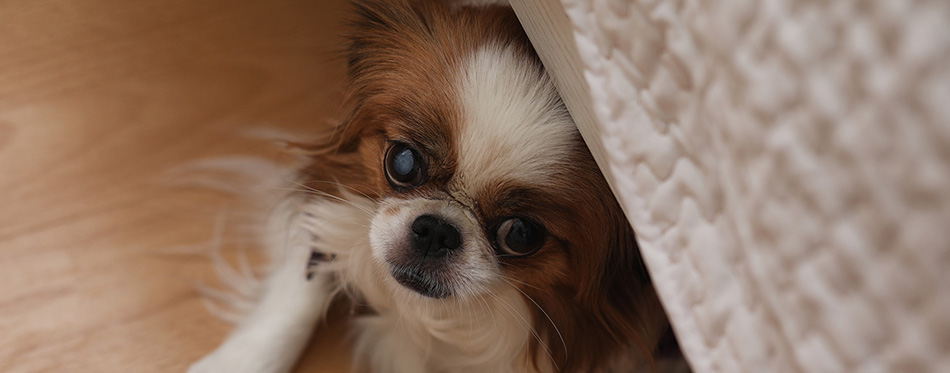Dogs are fun, energetic, and naturally curious. A lot of them are even very affectionate. However, there are times when your dog is a little aloof to you or is even cowering at the sight of you. If this happens, then there must be something that your dog fears – whether it’s you or something else.

Dogs and Fears
Dogs may be the most charming creatures on the planet but just like any other animal, they can also be scared or defensive in circumstances that pose a threat to them. A fearful dog always has a choice between fight or flight. This means that if they are afraid of you, they can either run from you or attack you, depending on their personality and level of fear.
What Causes a Dog’s Fears?
There are many reasons that can cause fears in your dog while there are some that are naturally ingrained to be their fears. For example, dogs are naturally afraid of fireworks and loud continuous noises. If you notice them on New Year’s Eve, you would know that fireworks cause them to bark loudly or to cower in a corner while shaking a little bit.
On the other hand, there are fears that are caused by experience. For example, your dog can form a kind of trauma after a scary incident during their younger years. They could have gone through some social deprivation or embarrassment. They could have also gone through a history of panic or getting away from something. These things can all be a cause for your dog’s fears.
Dogs Fearing Their Owners
A common worry among dog owners are dogs that are afraid of them. Questions like “What if my dog is afraid of me? How do I know if my dog is scared of me? How to get a scared dog like you?” come up in pet forms showing a big number of people worrying that they might have done something wrong with their dog. If you resonate with these questions, keep reading to know more about the truth behind it and how you can repair your relationship with your furry friend.
Signs That Your Dogs Are Afraid
Before assuming that your dog is afraid of you, you have to look at the signs that say so. In this section, your question about the “signs my dog is scared of me” will be answered.
Body Language
Similar to humans, a dog’s body language says a lot about their feelings. When your dog is feeling scared or anxious, they will often exhibit one or more of the following:
- Flattened ears
- Lip licking
- Cowering
- Yawning
- Tail hiding in between their legs
- Tensed/raised hair on their body
- Scratching excessively
Behavior
When your dog is afraid, body language is not the only sign of their fears. In fact, there are certain behaviors associated with being afraid. Here are some:
- Growling
- Biting
- Baring their teeth
- Barking
- Increased destructiveness
- Submissive urination
- Pacing
- Lack of appetite
- Attempts to hide
Physical Symptoms
Finally, you have physical symptoms. Physical symptoms describe the actual state of their body parts or the involuntary changes in their natural body functions. You might notice your dog experience these things:
- Drooling
- Trembling
- Dilated pupils
- More frequent bowel movements / uncontrollable peeing
- Panting
When you see one or some of these symptoms, there is a high chance that your dog is afraid of you. However, to be sure, it is always best to consult a vet so he or she can assess if the fear is of you or caused by something/someone else.

How to Treat a Fearful Dog
Depending on the level of fear and anxiety your dog has, your vet can either prescribe anti-anxiety medication or put your pet through some behavior modification practices. Some dog owners are not always keen on giving medication, so in cases like this, your vet might ask you to enroll them in training classes to help them adjust certain behaviors.
- Home care
Some dogs who have simple fears and phobias do not necessarily need to take medication. In fact, some dogs recover just by having a welcoming and loving owner. Hence, as a dog owner, it is your responsibility to create a safe place for your dog. Most of the time, this requires a lot of patience and consistency. Since your dog is coming from a trauma, it may be helpful to avoid having their triggers around the house.
- Dog training
There are cases when treating fearful dogs requires professional help. If this is the case, look for a professional dog trainer that can help guide and train your dog. Usually, dog training is not just about teaching your pet some tricks; they also do some obedience commands where they teach the dog to behave and to follow their owners.
What makes dog training effective is not only about what is being taught, rather it’s also about the kind of reinforcement trainers do. Trainers use positive reinforcement wherein they give the dog some dog treats whenever they follow certain commands. These treats help reframe the mind of the dog away from their expectation to be punished.
- Animal behaviorist
An animal behaviorist can work hand-in-hand with a skilled dog trainer in order to better deal with your dog’s behavioral problems brought about by fear. An animal behaviorist will apply certain exercises and practices that will focus on behavior modification.
For modifying behavior, you have to understand that this does not happen overnight. Some dogs were able to develop fears because of continuous trauma in the past. If this is the case, then expect that this will be a work-in-progress for a long time.
- Medication
There are cases when both a dog trainer and a loving dog owner are not enough to reduce or manage the fear of your dog. In spite of the reluctance of some dog owners, there are cases when medication will be the best way to treat their fears. Don’t worry, your vet will most likely give medication that will just help manage the anxiety. Depending on how your dog will respond to it, they might not even have to take the medicine for a long time.

Tips for Reducing Your Dog’s Fears
As a dog owner, your role in shaping the behavior and the well-being of your furry friend is crucial. Since you will be their constant companion, it is important to know what you should do to create a safe home for your dog and to reduce their fears (if they have any).
- Train them to get used to separation
Not all dog owners have the luxury of staying at home and playing with their dogs the whole day. If you are already working, then you might want to train your dog to get used to separation. This will help them adjust better to the routine of you leaving in the morning and going back in the afternoon or at night.
You can also give them “alone time” even if you are at home. Alone times like letting them sleep in their own bed or corner, and letting them play on a different space will help establish that feeling of separation. It’s not that you don’t want to be with your dog, it’s just a technique to help them learn to amuse themselves without you.
- Don’t leave them alone for too long
Consequently, you should not leave your dog alone for too long. Sure, you’ll be working the whole day but don’t forget to hire someone to walk your dog for you if you cannot make it home on time. If you work long hours, this is especially helpful because you can rely on someone to feed and walk your dog.
If you are thinking of getting a dog (given that you don’t have any yet), look for a breed that doesn’t require a lot of attention. For working people, it is for yours and the dog’s sake that you find the right breed that will fit your lifestyle.
- Don’t forget their meals
Hunger is a traumatic experience for a dog. If you will be leaving them for long periods of time, make sure that you feed them in the morning and place another bowl for them to eat in the afternoon. This may be hard to do if your dog is not trained, so it’s a lot better to hire someone to do it. Dogs need to eat twice a day – in the morning and in the afternoon, but the amount of food differs per dog size.
Related Post: Automatic Dog Feeders
- Make sure everything they need is met
A dog’s basic needs are just as important as a person’s. As part of creating a safe environment for them, you have to supply them with all their needs. This means they should have a place to sleep in that will not cause them to get wet from the rain, they should have the right amount of food, and they should be given attention. All these things are important in ensuring that your dog doesn’t associate you with something negative.

